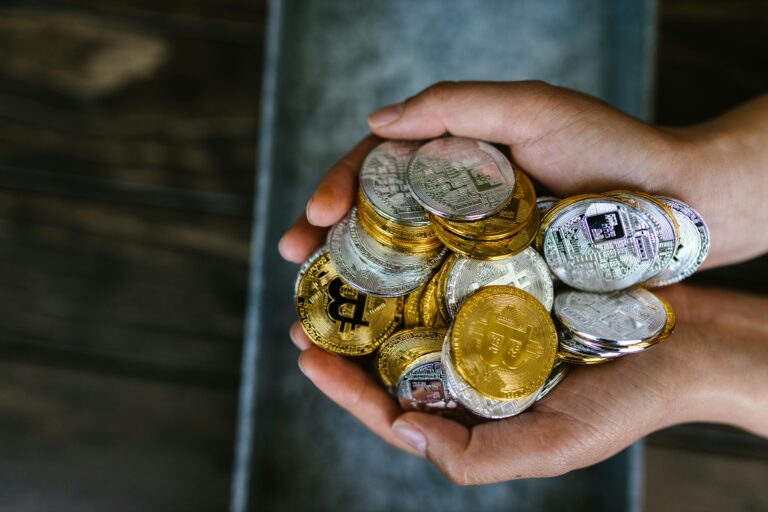How to Recover Your Stolen Cryptocurrency
Cryptocurrency theft is a growing concern in the digital age, where the value and popularity of digital assets have skyrocketed. If you’ve fallen victim to such a crime, the path to recovery can seem daunting.
However, with a structured approach and awareness of available resources, there are steps you can take to try and recover your stolen funds.
This guide will walk you through the process of recovering stolen cryptocurrency and provide tips on how to protect yourself from future theft.
How to Recover Your Stolen Cryptocurrency Step by Step
1. Stay Calm and Act Quickly
- The immediate aftermath of discovering your cryptocurrency has been stolen can be stressful. Stay calm and focus on taking swift action.
- Avoid making hasty decisions out of panic. Carefully document all details related to the theft, including transaction IDs, dates, and communications.
2. Secure Your Accounts
- Change the passwords of all your cryptocurrency exchange accounts and associated email addresses immediately.
- Enable two-factor authentication (2FA) on all accounts to add an extra layer of security.
- Check for unauthorized access to any other accounts and secure them as well.
3. Notify the Exchange
- If the theft occurred through an exchange, contact their support team without delay.
- Provide all relevant information and evidence to help them investigate and possibly freeze the stolen funds.
4. Report to Authorities
- File a report with local law enforcement agencies.
- In the United States, you can also report to the FBI’s Internet Crime Complaint Center (IC3).
- Reporting the crime can aid in larger investigations and help prevent future incidents.
5. Use Blockchain Explorers
- Utilize blockchain explorers to track the movement of your stolen cryptocurrency.
- Identify the wallet addresses involved and monitor any transfers to alert exchanges or law enforcement if the funds move to known platforms.
6. Hire a Professional
- Consider hiring a cybersecurity expert or a professional recovery service specializing in cryptocurrency theft.
- Be cautious and conduct thorough research to avoid scams, as legitimate services will not require upfront payments.
7. Spread the Word
- Share details about the theft on social media and cryptocurrency forums.
- Disseminating the wallet addresses involved can alert the community and exchanges, potentially stopping the thief from using the funds.
8. Monitor Exchanges and Wallets
- Keep an eye on exchanges for any signs of your stolen cryptocurrency being cashed out.
- Inform exchanges about the theft so they can flag and monitor suspicious activity.
9. Consider Legal Action
- Consult with a lawyer specializing in cryptocurrency and cybercrime.
- They can advise on legal options, including filing a lawsuit if appropriate.
Protecting Yourself from Future Theft
1. Secure Storage Options
Store your cryptocurrency in secure wallets, such as hardware wallets, which are not connected to the internet and are less susceptible to hacking. If you use exchange wallets, ensure they have robust security features and regularly update your security settings.
2. Phishing Scams and Social Engineering
Be vigilant about phishing scams and social engineering attacks. Always verify website URLs and be cautious of unsolicited emails or messages. Never share your private keys or personal information with anyone.
3. Multi-factor Authentication (MFA)
Enable MFA on all cryptocurrency accounts and exchanges. This adds an extra layer of security by requiring a second form of verification beyond just a password.
Technical Considerations for Tracking Stolen Funds
- Blockchain explorers allow you to track the movement of cryptocurrency transactions on the blockchain.
- While these tools can show where your stolen funds are going, they have limitations, such as difficulty identifying the wallet owner.
- Cryptocurrency transactions have confirmation times, which can affect recovery efforts. Faster confirmation times can make it harder to freeze stolen funds before they are moved.
Legal and Regulatory Considerations
1. Reporting Requirements
- There may be legal requirements to report cryptocurrency theft, especially if the stolen amount exceeds certain thresholds.
- Familiarize yourself with local regulations and report the theft to relevant authorities.
2. International Cooperation
- Cryptocurrency theft often involves cross-border transactions, making international cooperation crucial.
- Efforts to combat crypto crime require collaboration between law enforcement agencies across different countries.
Resources and Support
- There are security firms and recovery services specializing in cryptocurrency theft. Research their reputation and fees before engaging them.
- These professionals can use advanced tools and techniques to trace and recover stolen funds.
- Online communities and support groups for cryptocurrency users can be valuable resources for information, advice, and emotional support.
- Engaging with these communities can also help you stay updated on the latest security practices.
Advanced Tracking Techniques
1. Blockchain Analysis
Blockchain analysis firms specialize in tracing stolen cryptocurrency by identifying patterns and connections within blockchain data. These firms use sophisticated tools to track transactions and potentially identify the culprits.
2. On-Chain Forensics
On-chain forensics involves analyzing blockchain transactions to detect criminal activity. This can include examining wallet behavior and transaction patterns to identify potential money laundering techniques.
3. Dark Web Monitoring
Dark web monitoring services can track mentions of stolen cryptocurrency addresses on dark web marketplaces. These services can provide leads on where the stolen funds might be headed.
Investigative Strategies
1. Civil Asset Forfeiture
- Civil asset forfeiture laws allow authorities to seize assets suspected of being obtained illegally, including stolen cryptocurrency.
- Understanding these laws can help you navigate the legal process of recovering stolen funds.
2. Working with Exchanges
- Collaboration with cryptocurrency exchanges is crucial during recovery attempts.
- Exchanges may have the ability to freeze or trace stolen funds, but they require cooperation and clear communication.
3. Hiring a Cryptocurrency Lawyer
- Seeking legal counsel from a lawyer specializing in cryptocurrency theft can be beneficial.
- They can navigate complex legal issues and advise on the best course of action for recovery.
Emerging Threats and Solutions
- Quantum computing poses a potential future threat to cryptocurrency security, as it could break the encryption used in blockchains.
- Staying informed about advancements and potential solutions is essential for long-term security.
- Sophisticated scams, such as SIM swapping attacks and fake investment schemes, are emerging threats.
- Being aware of these tactics can help you protect your assets.
- Evolving regulations in the cryptocurrency space can impact recovery efforts and user protection.
- Stronger regulations can provide more avenues for recourse in case of theft.
Psychological Impact and Coping Mechanisms
Acknowledge the emotional toll of cryptocurrency theft and seek mental health support if needed. Online communities can offer a platform to share experiences and find support. Reporting cryptocurrency theft helps build a comprehensive understanding of crypto crime and aids in future investigations.
Conclusion
Recovering stolen cryptocurrency is a complex and often challenging process. By acting quickly, securing your accounts, and utilizing available resources, you can improve your chances of recovery.
Protecting yourself from future theft involves implementing strong security measures, staying informed about emerging threats, and engaging with the crypto community for support and updates. While the journey to recovery may be difficult, taking these steps can help safeguard your digital assets and contribute to a safer cryptocurrency ecosystem.
Frequently Asked Questions
1. How can you withdraw your cryptocurrency funds?
Since there is no way to get your money back from cryptocurrency transactions, it is vital to be aware of the hazards before sending or investing any bitcoin.
2. Is it possible to claim cryptocurrency that was stolen?
Investors may file a loss claim for a number of events, including trading activity, frozen property, stolen or lost cryptocurrency, rug pulls, and worthless NFTs.
3. Who looks into cryptocurrency theft?
When it comes to the prosecution of cryptocurrency-related fraud and market manipulation, the MIMF Unit is a national leader.



